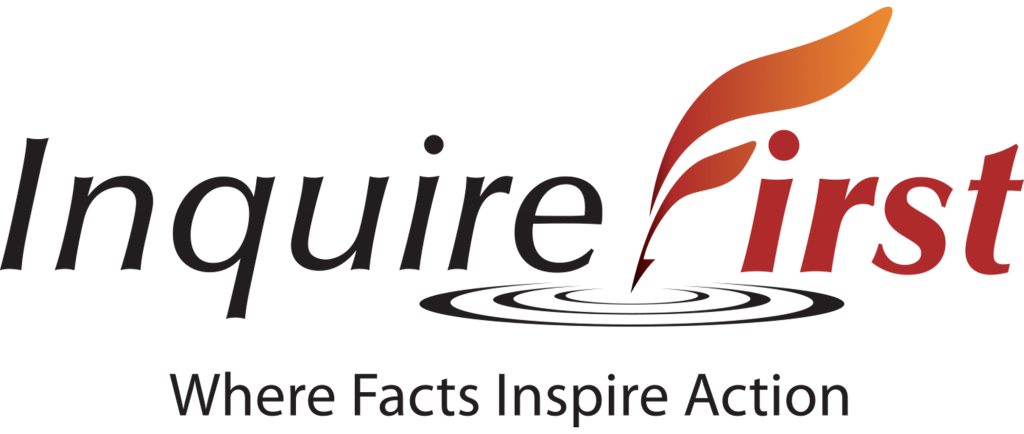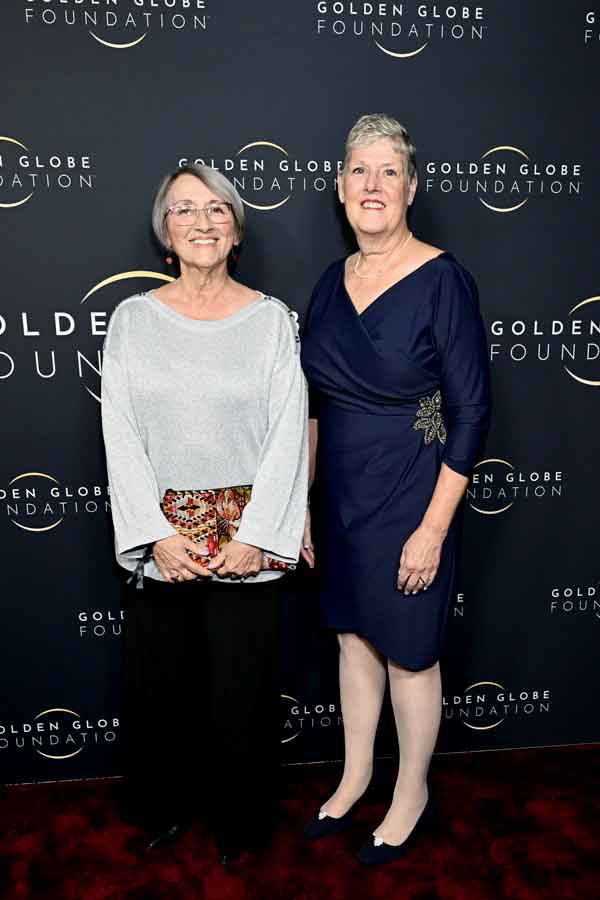
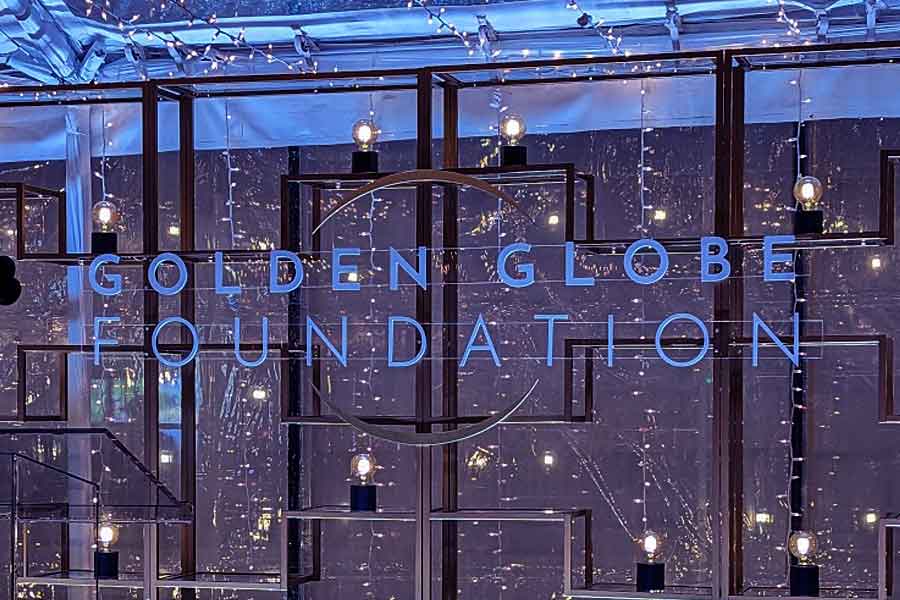
InquireFirst attends Golden Globe Foundation gala for 2024 grant recipients
BEVERLY HILLS, Ca. — We are honored and absolutely thrilled that InquireFirst was invited by the Golden Globe Foundation to attend its Grantees Dinner and gala celebration on January 5 at the start of Golden Globes weekend.
The Golden Globe Foundation is funding the fourth season of En Común: conocimiento en voz viva, our Spanish-language radio program radio on science, health and environment tailored for rural and Indigenous communities in Mexico. Many of the 20 episodes are reported by Indigenous journalists who have worked with InquireFirst each season since we launched in 2020.
The fourth season of En Común began airing in January 2024.
En Común is led by co-founder and executive producer Iván Carrillo, who works with the reporters, writes the scripts and voices the program.
Mexico-based journalist Raquel Villanueva works with radio stations from Chiapas to Baja California to ensure that our program is broadcast millions of listeners.
InquireFirst Executive Director Lynne Walker was joined at the Golden Globe Foundation gala in Beverly Hills by science writer Lynne Friedmann, who is a member of the InquireFirst Advisory Council. The event was held two days prior to the Golden Globe Awards.
This year, the Golden Globe Foundation donated $5 million to 96 nonprofit organizations serving disadvantaged communities, several universities and colleges, film restoration projects, and programs providing support to journalists around the world.
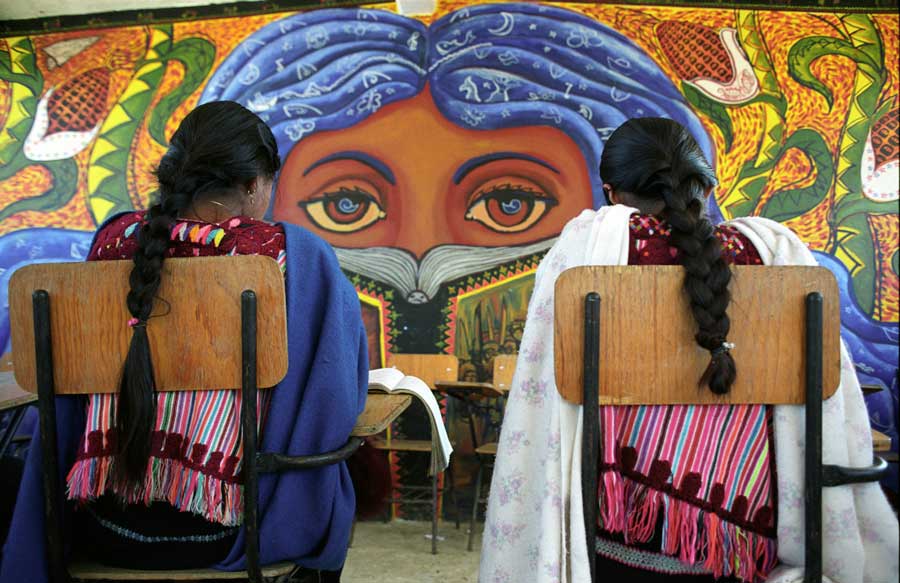
InquireFirst web developer displays photos at Zapatista art exhibit
The art festival, titled CompArte por la Humanidad, is being organized by the Centro Universidad Popular in Vista. The Centro is organizing the exhibit to give the Southern California community an opportunity to learn about the Zapatista movement, which began in January 1994 to draw global attention to the plight of Mexico’s impoverished indigenous people.
The Zapatistas, known by the initials EZLN, stunned Mexico when they launched their New Year’s Eve uprising from their mountain stronghold in Chiapas. The masked, bearded leader of the EZLN, Subcommander Marcos, said the movement was focused in part on opposition to globalization – and in particular the North American Free Trade Agreement (NAFTA) – which went into effect on Jan. 1, 1994.
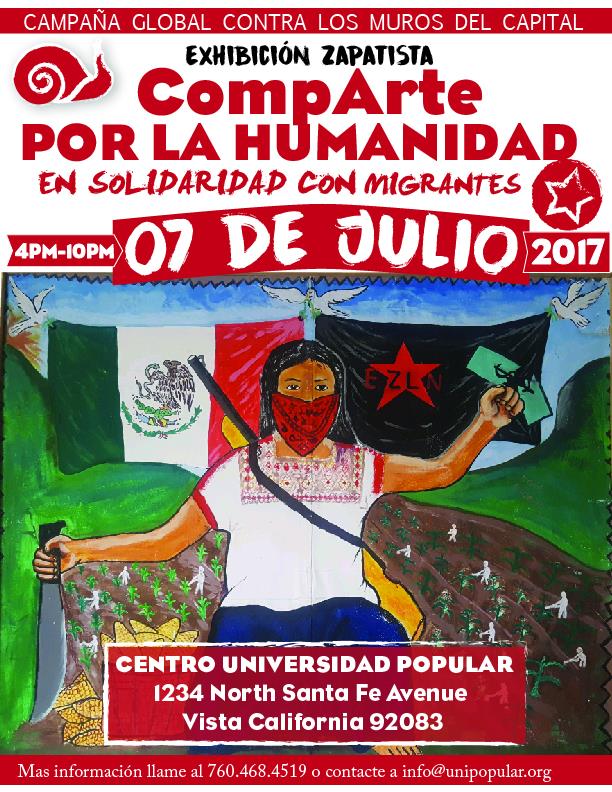
The EZLN established itself as the voice of oppressed, indigenous people in Mexico and eventually won the right for Zapatistas to govern themselves in mist-shrouded, coffee-producing communities in the highlands of Chiapas. But today, poverty remains a persistent problem in the communities, which have rejected government aid programs.
The CompArte por la Humanidad exhibit is comprised of 35 pieces produced by Zapatistas, including painted canvasses, wooden sculptures, and textiles which reflect the perspectives and experiences about life as farm workers, collective labor projects, autonomous education, autonomous health services, and freedom of expression.
The original art festival took place in San Cristóbal de las Casas, Chiapas in July 2016 and part of the exhibit has traveled through San Diego and is now being hosted at the Universidad Popular Center gallery in Vista in collaboration with community organizations including the Indigenous Front of Binational Organizations, Raices Sin Fronteras, MEChA de CSUSM, the 6ta San Diego, Alianza Comunitaria and MAIZ.
The opening is Friday, July 7, from 4pm-10pm and there will be music, food and coffee from Chiapas. It’s free and open to the public. The exhibit can also be viewed the week of July 10 from 4pm-8pm at 1234 North Santa Fe Avenue in Vista, California.
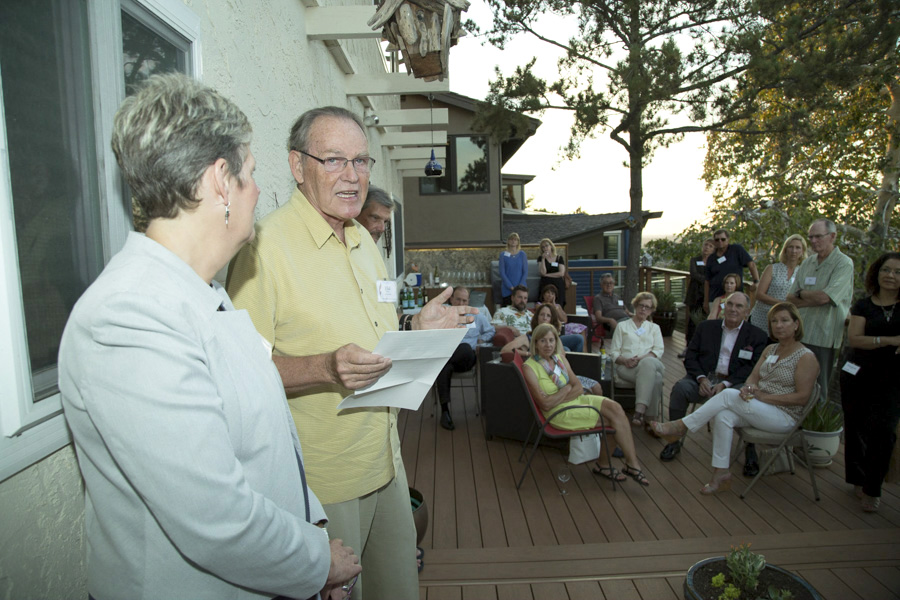
SAN DIEGO — In an era when the insatiable demand for news reduces information to sound bites and 140-character messages, InquireFirst is digging into issues of national importance and staying with them until they are identified and exposed.
“InquireFirst will know how to use both shoe leather and legal briefs to get the facts citizens need,” said Harold W. Fuson, an attorney and First Amendment expert who serves on the InquireFirst board of directors. “When important information isn’t forthcoming, InquireFirst will have the patience to keep the pressure on.”
Fuson spoke to about 60 people gathered in San Diego for an InquireFirst fundraiser held on July 27 and hosted by KPBS Roundtable anchor Mark Sauer. He was joined by Rosemary Gibson, an InquireFirst board member and health care economist who is researching a book on the increasing U.S. reliance on Chinese-made pharmaceuticals. Gibson’s research will be the subject of an InquireFirst investigative project that focuses on international trade and economic issues, as well as science and technology and public health concerns.
Gibson told the audience that while our fruits and vegetables, our clothes, and even our smart phones are carefully labeled with country-of-origin information, consumers rarely know where their life-saving medicines are being manufactured. That lack of information has resulted in fatal consequences for patients and is raising serious concerns among health care professionals across the country, Gibson said.
Fuson focused on the financial pressures that are creating tighter deadlines and shrinking newsrooms across the country. “The result is a brake on every newspaper’s enthusiasm for pressing for information.” Newspapers that once “lobbied, sued and mounted vigorous defenses when others sued them…can’t do the door-pounding and exert the lobbying pressure they once did.”
That’s why organizations like InquireFirst, an online investigative journalism site, are needed now more than ever, he said. “InquireFirst won’t just disappear with yesterday’s blogs, buried ever deeper in infinite Google search results.”
InquireFirst “will make sure that all the information about problems like that of lead in the water supply have been identified and exposed,” said Fuson. “Or if it hasn’t been exposed, to put up a big sign telling citizens that somebody is holding out on them. Or to lay the necessary groundwork for litigation or legislative action.”
As InquireFirst expands its national and international coverage, Fuson said the organization “will present information in ways that make it credible and useful to all citizens.
“Finally,” he said, “the goal is a simple one: to help us all make better decisions about public issues.”
